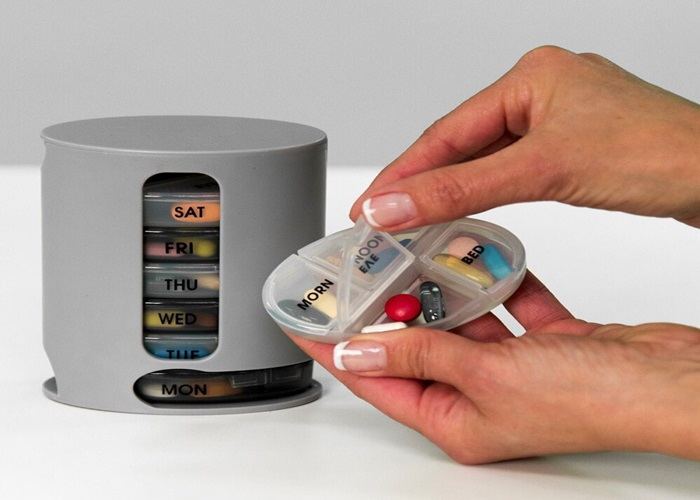What It Is and How It Works
The mini – pill contains a synthetic form of the hormone progesterone called progestin. It works mainly by thickening the cervical mucus, making it difficult for sperm to reach the egg. It also thins the lining of the uterus, which can prevent implantation of a fertilized egg. Unlike combination birth control pills that contain both estrogen and progestin, the mini – pill is a simpler hormonal option.
Progestin in the mini – pill has a direct impact on the reproductive system. It suppresses ovulation in some women, but not as consistently as combination pills. However, its effects on the body’s hormonal balance can potentially play a role in managing perimenopausal symptoms.
Impact on Menstrual Irregularities
Regulating Cycles
One of the most prominent features of perimenopause is irregular menstrual cycles. Hormonal fluctuations during this time can lead to unpredictable periods, with changes in cycle length, flow, and frequency. The mini – pill can help regulate these cycles to some extent. By providing a consistent level of progestin, it can stabilize the endometrial lining of the uterus. This can lead to more regular bleeding patterns, reducing the frequency of heavy or prolonged periods that are common in perimenopause.
For example, a woman who was experiencing periods that were coming too close together or had very long and heavy menstrual flows might find that the mini – pill helps to space out her periods and make the bleeding more manageable. This regulation can provide a sense of predictability and relief from the stress associated with unpredictable menstrual cycles.
Hot Flashes and the Mini – Pill
Possible Alleviation
Hot flashes are a well – known and often distressing symptom of perimenopause. They are caused by the body’s changing hormonal balance, particularly the decline in estrogen and the resulting instability in the body’s thermoregulatory system. While the mini – pill doesn’t contain estrogen, the progestin it provides may have an indirect effect on hot flashes.
Some studies suggest that progestin can interact with the hypothalamus, the part of the brain that controls body temperature and hormonal regulation. By modulating the hormonal environment, the mini – pill might potentially reduce the frequency or intensity of hot flashes in some women. However, the evidence regarding its effectiveness in this regard is not as strong as for its effects on menstrual regulation.
Mood and Libido
Mood Stabilization
Mood swings are a common perimenopausal symptom. The hormonal changes during this period can affect neurotransmitters in the brain, leading to irritability, anxiety, or depression. Progestin in the mini – pill may have a stabilizing effect on mood. It can interact with the brain’s receptors and potentially influence the production and function of neurotransmitters like serotonin.
For example, a woman who was experiencing rapid mood changes during perimenopause might notice a more even – keeled emotional state after starting the mini – pill. However, individual responses can vary, and some women may not experience any significant mood improvement or could even have adverse mood effects due to the hormonal changes induced by the pill.
Effect on Libido
The impact of the mini – pill on libido during perimenopause is complex. Progestin can have different effects on sexual desire. In some cases, it may reduce libido by affecting hormonal balance and neurotransmitter function. On the other hand, by reducing some of the perimenopausal symptoms such as heavy bleeding and mood swings, it could potentially have a positive indirect effect on a woman’s sexual well – being.
Considerations and Precautions
Side Effects
The mini – pill is not without side effects. Some women may experience irregular bleeding or spotting, which can be a concern, especially during perimenopause when menstrual irregularities are already a problem. Other possible side effects include breast tenderness, nausea, and changes in weight. These side effects can vary from person to person and may influence a woman’s decision to use the mini – pill.
Consultation with a Healthcare Provider
It’s crucial for women in perimenopause to consult a healthcare provider before starting the mini – pill. The provider can assess the individual’s overall health, including factors such as a history of blood clots, breast cancer, or liver disease. They can also consider the specific perimenopausal symptoms the woman is experiencing and determine whether the mini – pill is a suitable option. Additionally, the healthcare provider can discuss alternative treatments and management strategies for perimenopause.
Conclusion
The mini – pill can potentially offer some benefits in managing perimenopausal symptoms such as menstrual irregularities and, to a lesser extent, hot flashes and mood swings. However, it’s important to weigh these potential benefits against the possible side effects and to make an informed decision in consultation with a healthcare provider. Each woman’s experience with perimenopause and response to the mini – pill can vary, so a personalized approach is essential.
Related topics
- Can Birth Control Pills Cause Hot Flashes?
- Top 6 Over-The-Counter Weight Loss Pills For Men
- Top 5 Over-the-Counter Pills for Erectile Dysfunction (ED)


